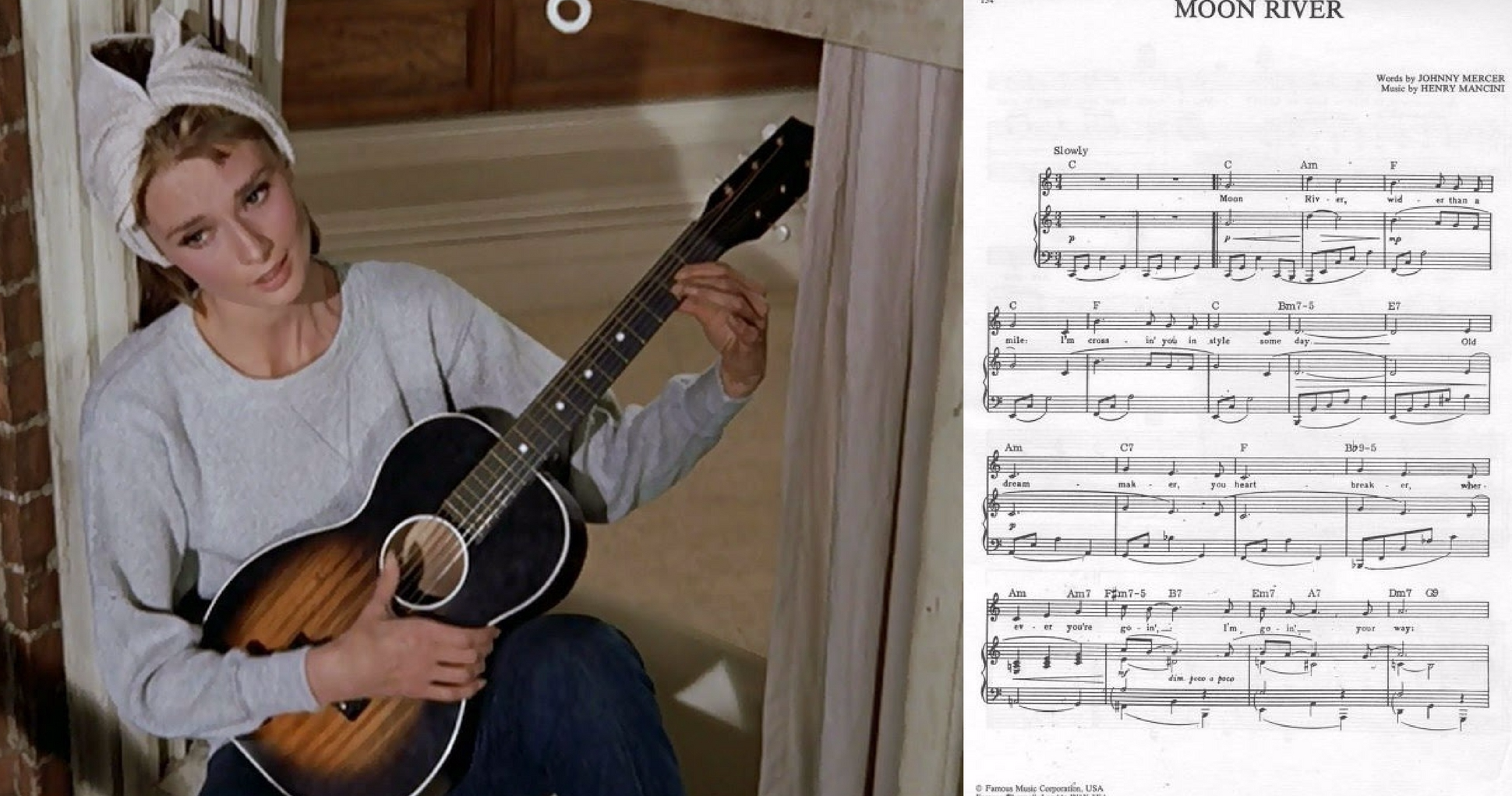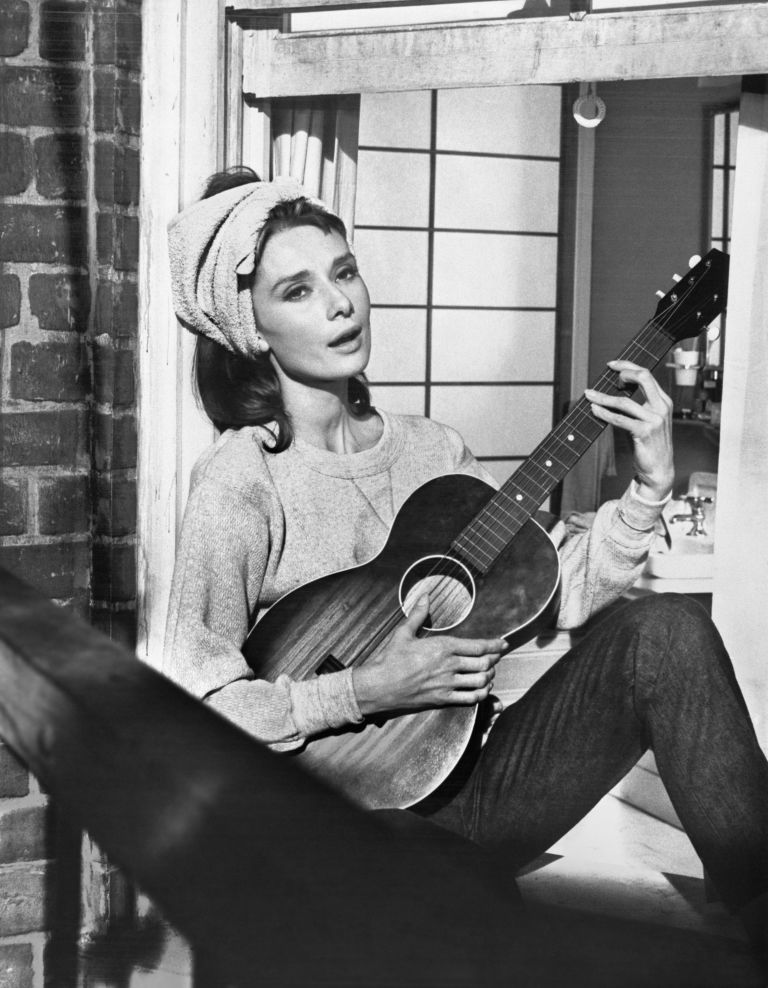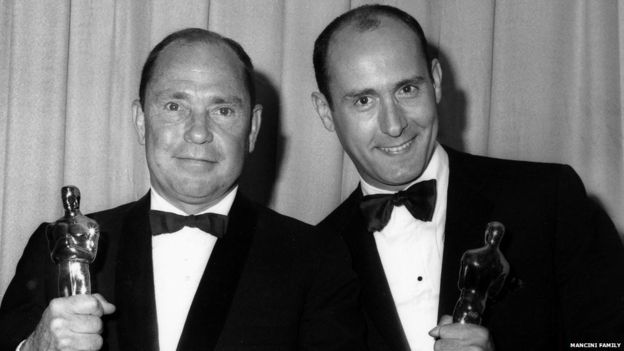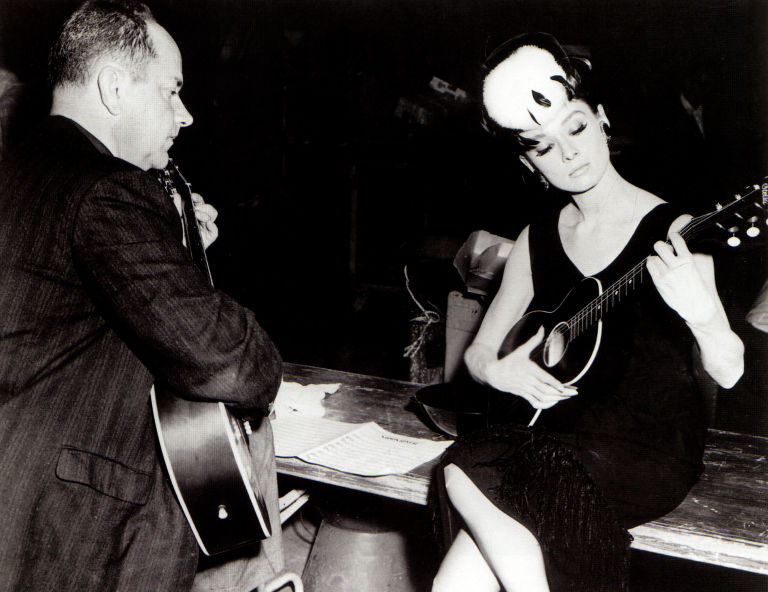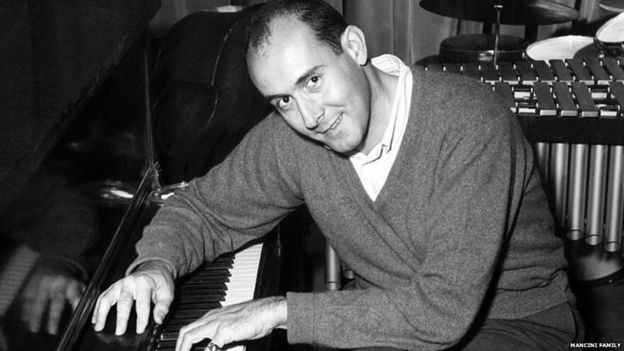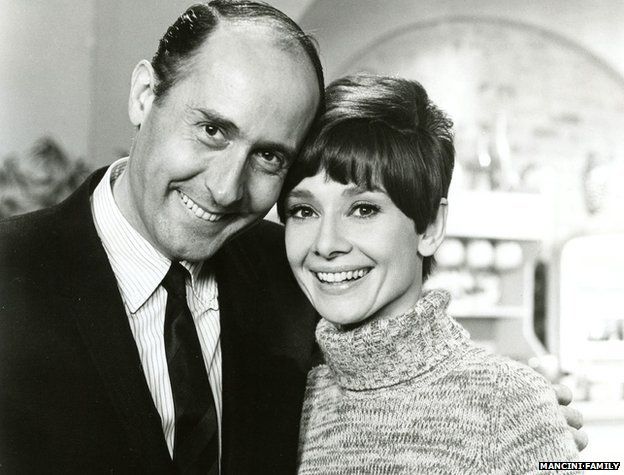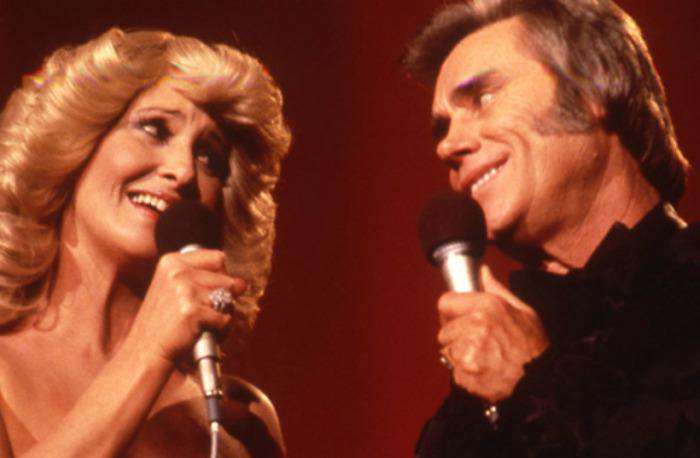We can all picture it- Audrey Hepburn without the dresses and jewels, just sitting on her window ledge with her guitar and a subtle song of Moon River cascading up the fire escape.
This musical number offered a raw look into the lead character, Holly Golightly, dressed down in jeans and a sweatshirt.
This simple song, of only 10 lines provided the dreamy soundtrack for the 1961 classic, Breakfast at Tiffany's.
The song went on to win an Academy Award for Best Original Song, 2 Grammy's for Record of the Year and Song of the Year.
Since it's release it has been covered thousands of time by artists including Frank Sinatra, Judy Garland and Aretha Franklin.
But how did this song come to be?
At first, Paramount film-makers were reportedly concerned that Audrey Hepburn was not a strong enough singer to pull off the song. They considered dubbing another voice over hers, but composer Henry Mancini was able to create a song from Hepburn's limited range. It took Mancini, the man behind The Pink Panther theme, a month to write the first three notes, and the rest came to him within half an hour after that.
Mancini then reached out to Johnny Mercer to write the lyrics to his score, and Moon River was born.
"Many songwriting teams sit down together and work out a strategy for a song, a way it's supposed to go. Henry and Johnny never sat down together," said Ginny Mancini, Henry's widow. "They discussed what it should be and what the lyric had to say, but once Henry had the melody nailed, he would just send it to Mercer."
It wasn't until Mancini was rehearsing for a benefit concern at the Beverly Wilshire Hotel in Los Angles when Mercer showed up with the lyrics.
Moon River, wider than a mile,
I'm crossing you in style some day.
Oh, dream maker, you heart breaker,
wherever you're going I'm going your way.
Two drifters off to see the world.
There's such a lot of world to see.
We're after the same rainbow's end--
waiting 'round the bend,
my huckleberry friend,
Moon River and me.
"They sat down in the empty ballroom and Henry played Moon River while Johnny sang the lyrics. Johnny was a wonderful singer and I loved to hear him sing. They were two of the best," Mrs. Mancini recalled.
But the song almost didn't make it to the movie. Find out why on the next page.
When putting the lyrics together for Moon River, Mercer's inspiration came from the waters ways of Savannah, Georgia, not the Hudson River in New York City like most people believe.
He wrote the chorus recalling his childhood home in Burnside Island which overlooked Back River. A year after the film's release, the County Commission dubbed a section of the Back River as Moon River.
Huckleberries appeared in the chorus because Mercer used to pick them as a kid.
"When I grew up in the South, by a river, there were always wild bushes, blackberries, strawberries, little wild strawberries, wild cherry trees, and huckleberries," Mercer is quoted in Portrait of Johnny: The Life of John Herndon Mercer," and that coupled with the name Huckleberry Finn "” and Mark Twain had written about the Mississippi, and this girl in Breakfast at Tiffany's was from around that neck of the woods, down there in the southwest United States, it just seemed to fit the need."
It's hard to believe that the song almost didn't make it into the movie. The screenplay was simply too long and the studio suggested cutting the scene from the film.
"I saw Henry go pale," Ginny said. "We were all stunned, totally stunned. We were quiet for a minute or two and then there was a barrage of reasons why it should stay in the film and cuts should be made in other areas."
Remember, the studio was concerned about Hepburn's musical abilities.
In the end, it was said that it was Hepburn that put her food down, insisting that the song should stay.
And it's a good thing it did! It's hard to imagine this film without the iconic song.
"There have been more than a thousand recordings of 'Moon River,'" Mancini said. "Of all of them "” and I am not overlooking the recordings by Andy Williams, Johnny Mathis, and Frank Sinatra "” Audrey's performance was the definitive version. It transcended anything I had ever hoped for the song."
Sources: Marie Claire / BBC
